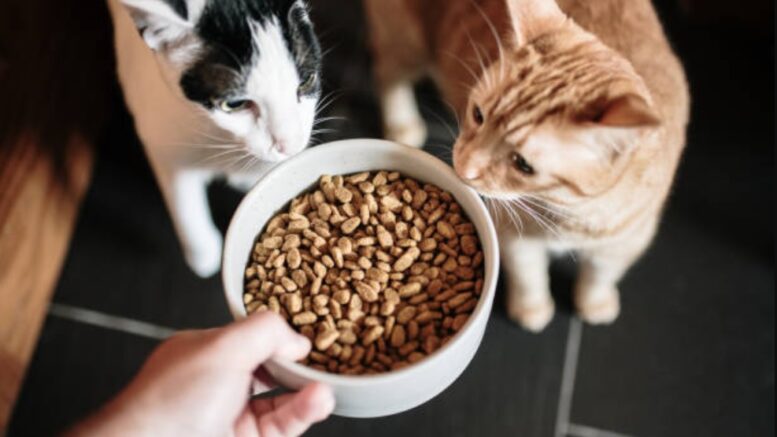Soy is a nutrient-rich plant protein that has various health advantages for animals. It has protein and fiber. Soy is an omega-3 fatty acid source. All these are necessary for the general health of your furry pet. Soy is a fantastic option for pets with allergies or sensitivities. Why? Soy is devoid of cholesterol and less allergenic than other protein sources.
Is that all? There are many benefits to feeding your pets soy. The following are the top five advantages of soy in pet food:
1. Superior-Grade Protein
Soy is a fantastic source of high-quality protein. All the essential amino acids needed for a pet’s healthy growth and development are in soy. Soy for your pet helps with building and mending tissues. Your pet needs soy to sustain a robust immune system. Likewise, soy supplies your pet with the energy its body requires. Hence, you can be sure your pet gets enough protein to sustain their active lifestyle by giving them soy.
Soy protein is highly digestible, making it a preferred animal feed ingredient. In addition, soy has a protein quality comparable to animal protein sources. Because of this, it’s a great option for satisfying your pet’s protein requirements.
2. Intestinal Wellness
Dietary fiber, which is critical for preserving the digestive health of pets, is abundant in soy. Fibre makes your pet’s bowel movements regular. Hence it prevents constipation. By so doing, it maintains your pet’s digestive system’s health. Additionally, soy is easily absorbed, so it is suitable for pets with sensitive tummies or food allergies.
Soy can support digestive health in the following ways:
- Controls bowel movements: Fiber makes stools bulkier, which helps keep the digestive tract moving. Constipation can be avoided, and regular bowel motions can be encouraged. Constipation affects pets regularly. It could result from some medications, dehydration, and a lack of fiber.
- One can avoid constipation by boosting the diet’s fiber content and assisting in digestion using soy.
- Upkeep of a healthy digestive system: The gastrointestinal tract is complex. It breaks down food and absorbs nutrients. By offering fiber and other nutrients crucial for gut health, soy can aid in maintaining the digestive system’s health.
- Soy is simple to digest, making it a fantastic option for animals with sensitive tummies or food allergies. Soy might lessen the chance of intestinal distress in pets with sensitive stomachs.

3. Cardiovascular Fitness
The benefits of soy for the heart are well documented. It has fatty acids and unsaturated fats. These are crucial for preserving a pet’s circulatory and heart health.
- Enhancing blood flow: Unsaturated fats improve blood flow by reducing blood viscosity. This can enhance circulation and avoid blood clots.
- Reducing inflammation: A critical risk factor for heart disease is inflammation. Unsaturated fats may be helpful to stop the production of inflammatory chemicals and lessen inflammation.
- Including soy in your pet’s diet can support cardiovascular health and a healthy heart. It is a safe and wholesome component that can support your pet’s heart health.
4. Joint Wellness
Soy has isoflavones. It also has phytoestrogens. These plant compounds have anti-inflammatory properties. They can therefore aid in reducing joint inflammation, which can cause pain and stiffness. For older pets or those suffering from joint diseases like arthritis, soy can be very beneficial.
Soy can benefit joint health in the following ways:
- Reduced inflammation: Joint pain and stiffness are frequently brought on by inflammation. By preventing the synthesis of inflammatory chemicals, soy can assist in lessening inflammation.
- Improves mobility: Soy can aid in increasing mobility and lowering discomfort by reducing inflammation. As a result, pets may find it simpler to roam around and engage in their favorite hobbies.
- Enhanced general joint health: By supplying minerals like glucosamine and chondroitin, which are crucial for joint function, soy can assist in improving overall joint health.
5. Weight Control
Soy is helpful for pets who need to control their weight. Compared to diets including animal-based proteins, soy-based pet meals frequently have a lower fat content. This can help your pet avoid weight loss and maintain their physical condition. Dietary fiber, which encourages a sensation of fullness and can help control your pet’s appetite, is another beneficial component of soy.
You can aid your pet’s efforts to lose weight and improve their general health by including soy in their diet.
Finally
A veterinarian will help ensure that soy is the best option for your pet’s needs before adding it to their meal.
They may advise you on a high-quality soy-based diet and assist you in determining the proper soy intake for your pet.
Here are some further suggestions for giving soy to your pet:
- Look for products with soy listed as the initial component. This indicates that soy is the food’s most prevalent ingredient.
- Foods that use soy as a filler should be avoided. The lack of nutrients in soy fillers might lead to weight gain.
- If your pet suffers from allergies, select a food without soy. There are several premium pet foods available that don’t include soy.
- You can easily add soy to your pet’s food and take advantage of its health advantages with a little advanced preparation.
